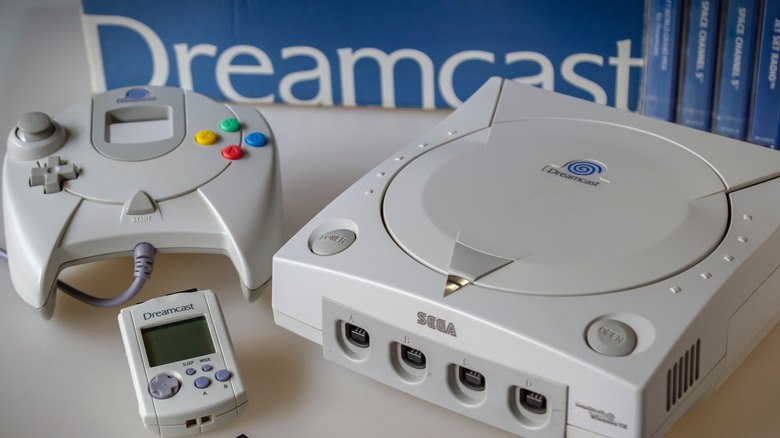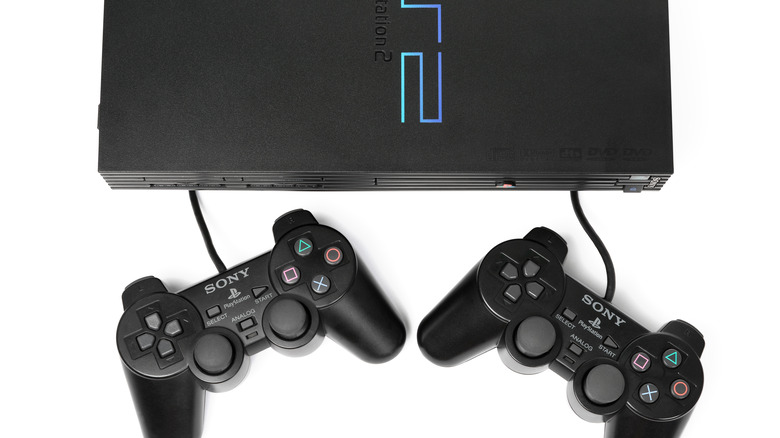Sega Taking A Shot At Sony Put A Target On The Dreamcast
The Sega Dreamcast embodied the adage of the brightest stars burning the fastest. It sold over 500,000 units in the U.S. during its first two weeks (per The Wall Street Journal) and crushed analyst predictions (per Los Angeles Times). But less than two years later, Sega was out of the console race for good.
How did this happen? Beyond lawsuits (via GameSpot) and an early blow from EA, the PlayStation 2 proved particularly effective in shutting down the momentum the Dreamcast conjured for itself early on. Former Sega executives have even continued to recognize Sony as the main culprit in the Dreamcast's demise (per GamesBeat). In a twist of marketing history, though, Sega itself helped seal its own fate with how it marketed against Sony and the PS2.
Even with its newest system's early success, the former first-party developer self-sabotaged by openly mocking its competition. The Ringer recapped several examples of marketing tactics geared to throw shade at Sony. It led to Sony sniping back with its own campaign to curb Dreamcast's momentum in favor of the PS2.
Sony sowed uncertainty in the Dreamcast
Sega became well-known for its unapologetic marketing tactics years before the Dreamcast, launching famous commercials to label Nintendo as the inferior gaming company. It attempted much the same with Sony, sending a sarcastic sympathy card about PlayStation 2 shipment troubles (via Wired) and flying a plane carrying a Sonic banner at a Sony event (per CNN Money).
Former Sega of America Presidents Bernie Stolar and Peter Moore spoke to The Ringer regarding Sony's marketing against the Dreamcast, describing it as a campaign based in doubt and fear of missing out on a superior console. "You might want to buy a Dreamcast, but if you do, recognize it's a transitional platform," Moore said of Sony's messaging. "You'll want the real thing when the PlayStation 2 ships."
The Dreamcast succumbed to this marketing campaign in the end according to Stolar, forcing Sega out of console production. The company that once rivaled Nintendo held only 15 percent of the console market by the time Sega announced it would discontinue the Dreamcast (per Los Angeles Times).
Unlike when it targeted Nintendo during the heyday of the Genesis, Sega had much more to lose. Design missteps encompassed the real reason why the Sega Game Gear failed, and Sega of Japan executive Hideki Sato has highlighted how the Sega Saturn performed poorly due to its steep learning curve for third-party developers. Already weakened by these skirmishes, Sega set the stage for its undoing by picking a fight with Sony and the more powerful PS2.


